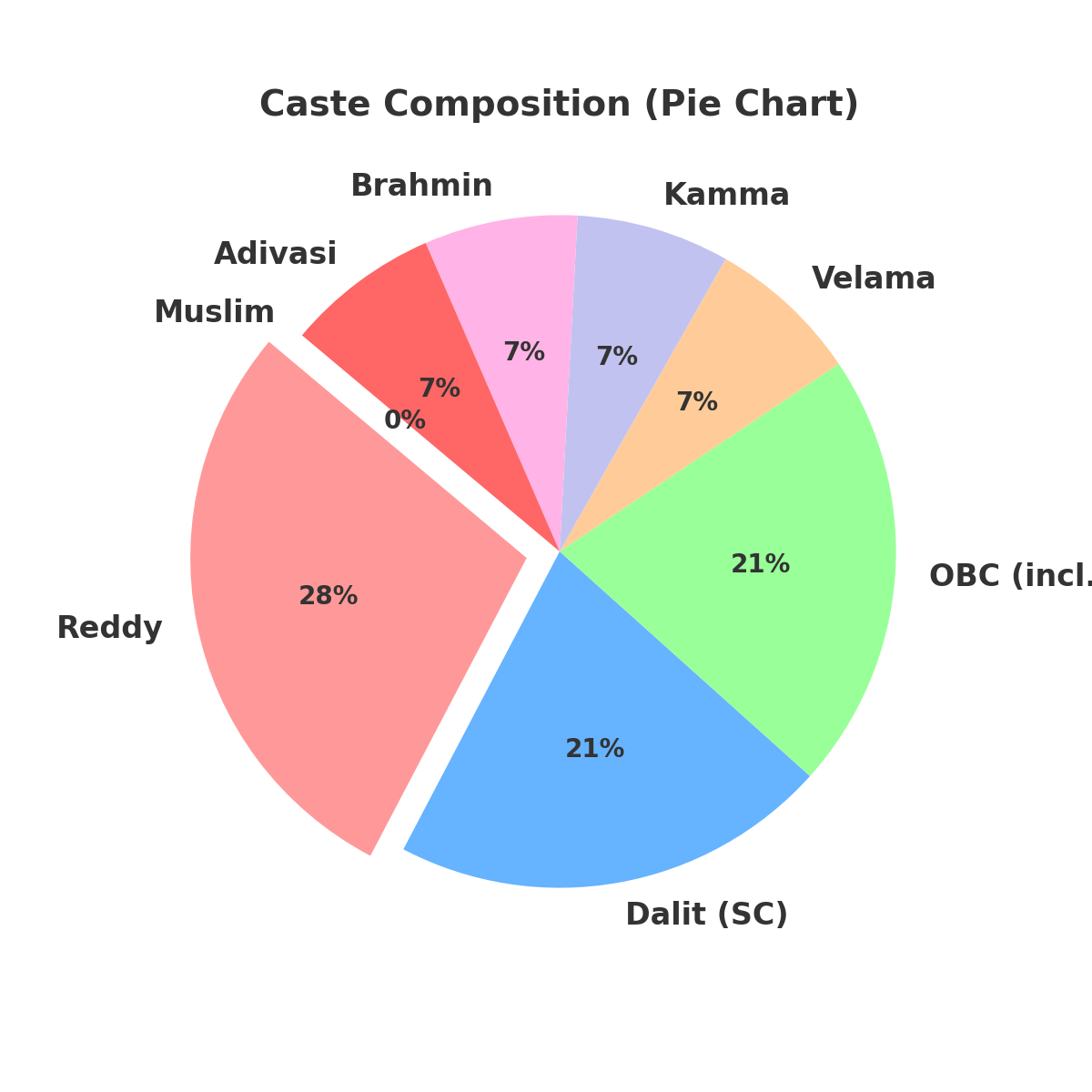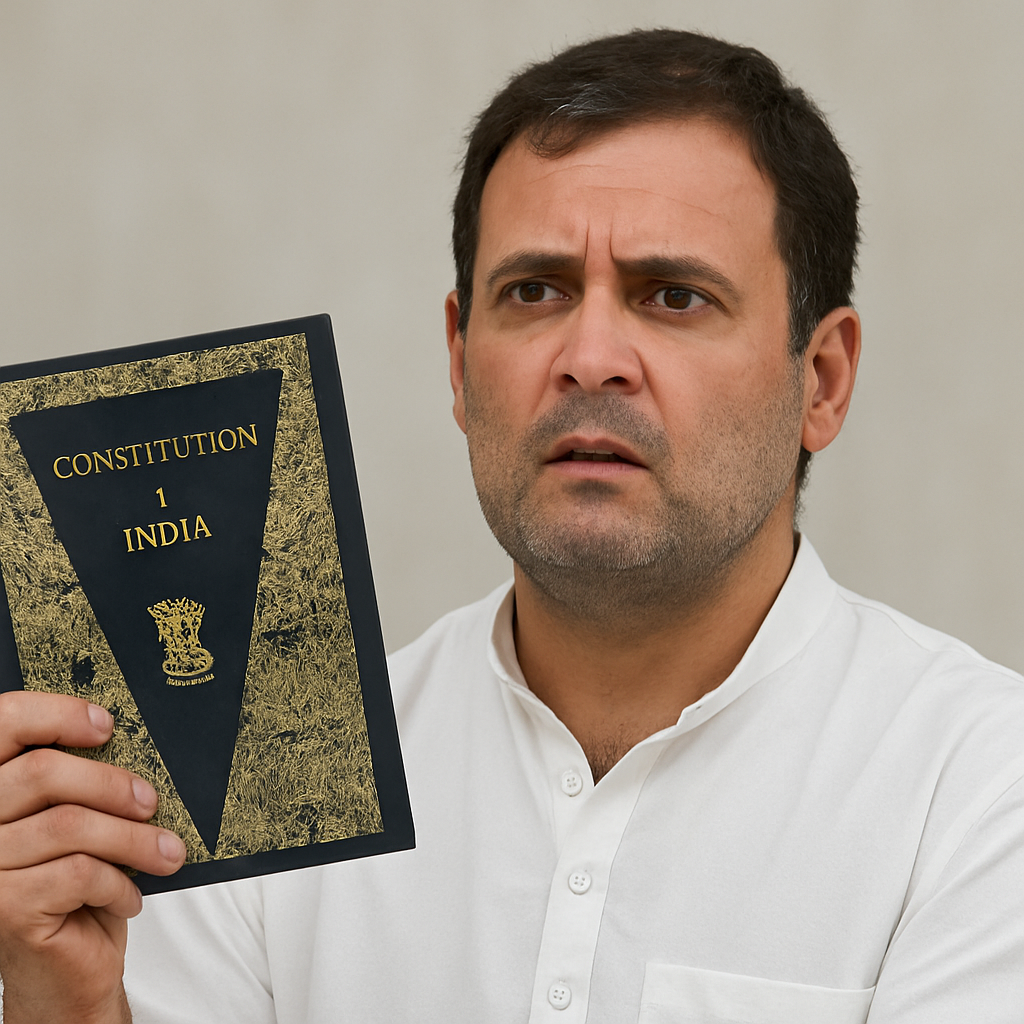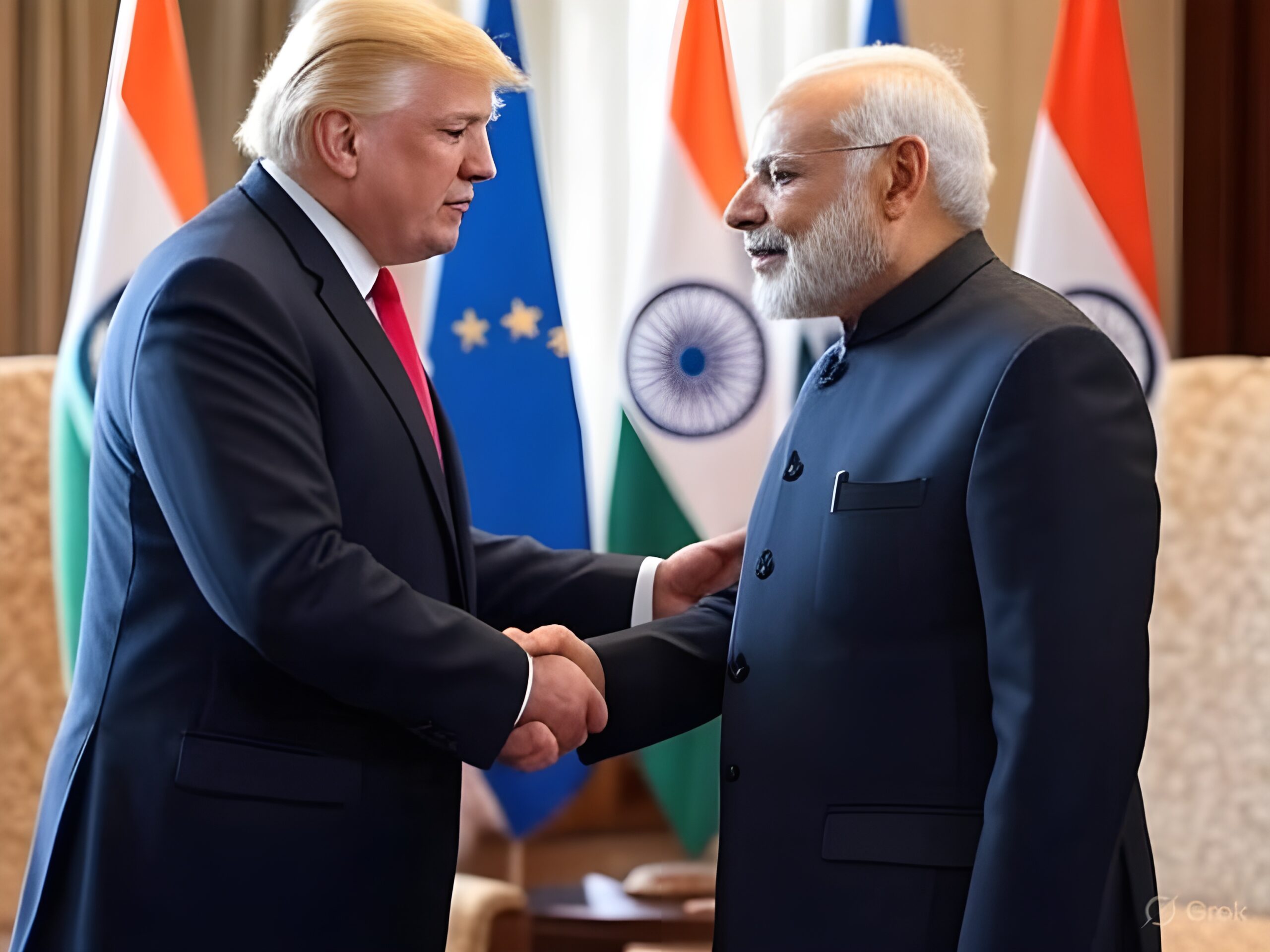India’s opposition politics today is saturated with the language of social justice. No one has leaned into that frame more visibly than Rahul Gandhi, who has pushed a nationwide caste census and higher OBC representation as core planks. Yet, a string of high-profile choices by the Congress (and the wider INDIA bloc it anchors) have triggered a familiar charge from critics: the rhetoric is bold, but the selections often lean back to traditional elites.
This blog pulls together three recent flashpoints—Telangana, Amethi, and the Vice-President nomination—to examine where the “caste census” promise is colliding with candidate reality, what constraints are real, and what consistency would look like. Below is the picture of caste wise representation of Telangana Cabinet

Telangana: Survey, Quotas—and a CM from a Dominant Caste
After winning Telangana (Dec 2023), Congress made A. Revanth Reddy Chief Minister—a leader from the Reddy community,
historically influential and not classified as OBC. Rahul Gandhi has since repeatedly praised Telangana for carrying out a statewide caste survey and for pushing a 42% OBC reservation package in local bodies and more—moves that have become the model for the party’s national pitch.
Critics point to the optics: if “greater representation” is the standard, why not an OBC CM or a cabinet weighted toward OBC communities? Early commentary noted a cabinet tilt towards upper-caste groups, even as the government later calibrated additions to include SC/BC ministers. The larger political narrative, however, remained that the top job stayed with a dominant caste leader.
The Telangana government argues it has done the work: completed the survey; passed 42% OBC reservation bills; and is now waiting on constitutional/assent hurdles (including litigation and a push around the 50% national cap). The CM has even threatened alternate routes (like targeting BC representation in panchayat seats) if assent stays blocked.
Congress’s policy actions in Telangana are substantial and measurable, but the symbolism of choosing a non-OBC CM undercuts the movement’s “representation first” messaging. Both things can’t be true. Analysts have pointed out that the Telangana Congress government has a visible overrepresentation of the Reddy community, both in ministerial positions and in many nominated posts. This reinforces the perception that despite the caste survey and quota promises, political power distribution at the top remains skewed towards dominant caste groups.
Amethi (2024): Not Rahul—And Not OBC Either
In the 2024 Lok Sabha election, the Congress did not re-field Rahul Gandhi in Amethi. Instead, it nominated Kishori Lal (KL) Sharma, a long-time Gandhi family aide—who went on to defeat Smriti Irani decisively. Coverage widely framed Sharma’s appeal among Brahmin voters (the “Pandit KL Sharma” positioning was noted as deliberate).
The friction. If the nationwide pitch is “power and tickets must reflect population share,” why didn’t the party pick an OBC face in a high-visibility battleground like Amethi?
The defense. Strategists would argue that local winnability mattered most. Sharma was the organizational constant in Amethi for decades and became the safest bet to win back a prestige seat after 2019. In other words: representation goals meet ground arithmetic.
Bottom line (Amethi). Congress reclaimed Amethi, but the choice reinforced the criticism that the party’s candidate pipeline still defaults to familiar elites when stakes are highest.
The Vice-President Pick (2025): A Jurist, Not a BC Leader
The INDIA bloc, announced by Congress President Mallikarjun Kharge, has nominated former Supreme Court judge B. Sudershan Reddy as its Vice-President candidate for the September 9 election—pitched as a “progressive jurist” vs the NDA’s C.P. Radhakrishnan. Again, the nominee is from the Reddy community, not a BC leader.
For a coalition foregrounding OBC representation, the symbolism of choosing a non-BC face for one of the republic’s top four posts is glaring to critics.
INDIA bloc leaders are framing this as a constitutional moment—picking a non-partisan jurist with a record on institutional questions, and (as Telangana’s CM argues) someone who chaired the state’s caste survey committee and could champion OBC issues nationally. That is a policy-adjacent justification, not a representation one.
The bloc prioritized domain stature and judicial credibility over caste representation in the choice—a coherent rationale, but one that blunts the purity of the “representation first” message.
“Hypocrisy”—or the Messy Middle of Coalition Politics?
Congress’s embrace of the “proportional power” and social justice plank increasingly suffers from a credibility problem of its own making. The party campaigns in the language of rights, representation, and dignity, but when faced with hard choices it routinely defaults to dynastic safe bets, elite loyalists, or coalition appeasement.
In Telangana it leaned on quota bills and survey politics while denying top leadership posts to OBCs; in Amethi it chose family prestige over representational signaling; even in national nominations it has privileged stature over symbolism. Voters who are told that representation is paramount can easily see through these contradictions, and rivals seize on them to brand Congress as opportunistic rather than transformative. Worse, the party’s repeated clashes with legal and constitutional barriers to quotas expose it not as a bold reformer but as a habitual over-promiser boxed in by realities it should anticipate.
The net effect is a widening gap between lofty rhetoric and lived credibility, leaving Congress vulnerable to charges that its social justice plank is more electoral packaging than governing priority.
What a Consistent Congress Playbook Would Look Like
If Congress wants its caste-census pitch to feel credible from start to finish, it will need to move beyond rhetoric and adopt structural commitments. Setting public, written targets for OBC, SC, and ST representation in tickets, cabinets, and party posts—with a transparent dashboard updated quarterly—would signal seriousness and force the party to justify exceptions up front. At the same time, Congress should institutionalize a pipeline by creating an OBC leadership fellowship that offers training, mentorship, and guaranteed opportunities, so that it cannot claim a shortage of candidates when pressed on representation.
Finally, pairing policy moves like quota legislation or caste surveys with representational milestones at the top—such as key constitutional offices or chief minister ships—would help close the gap between symbolism and substance. Together, these steps would replace ad hoc gestures with a visible, systematic approach that aligns Congress’s proportional-power rhetoric with its governing behavior.

















1 Comment
Error velit iure quaerat rerum omnis rerum. Est quam fugit beatae cumque veritatis labore. Ipsum est facilis rerum eaque harum aliquam. Ut possimus ea voluptatibus rerum. Quas in temporibus reprehenderit impedit. Reiciendis ut laboriosam voluptatem sunt. Deserunt voluptates corrupti adipisci omnis et. Eum quisquam et qui eligendi molestias qui. Quis assumenda animi esse voluptas rerum iste. Neque ad ut quia aspernatur ea ratione nam voluptas. Et sint voluptate adipisci inventore illum.